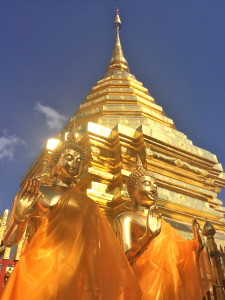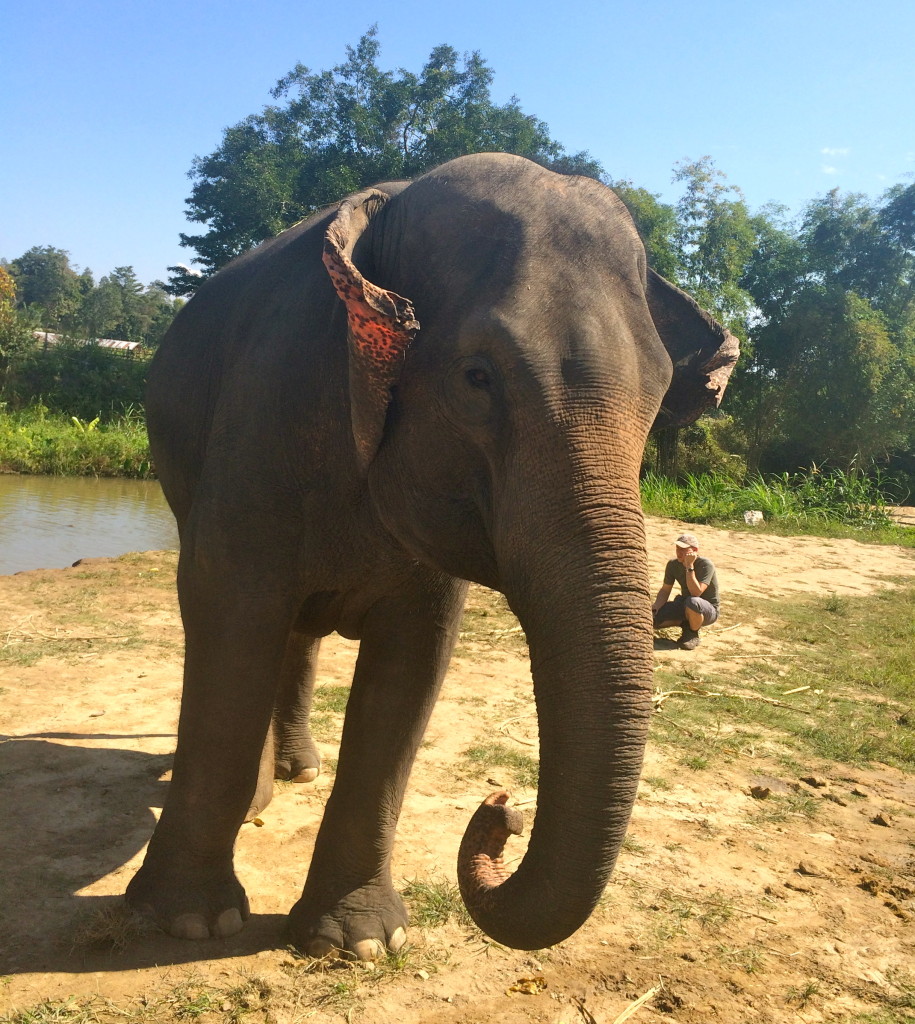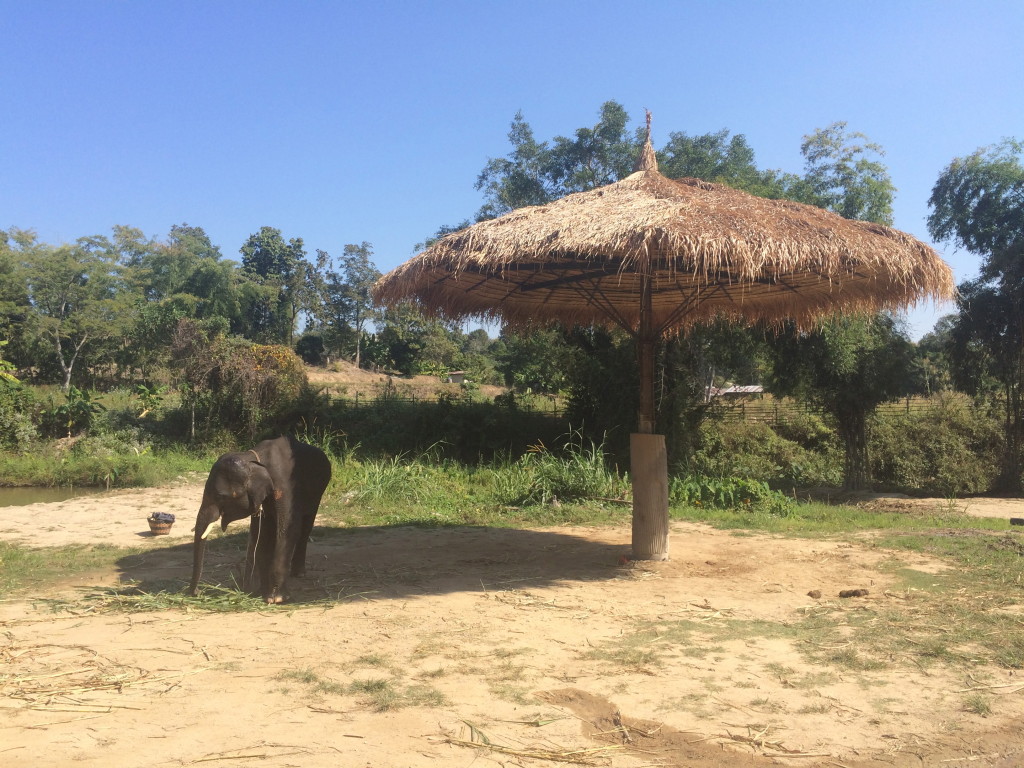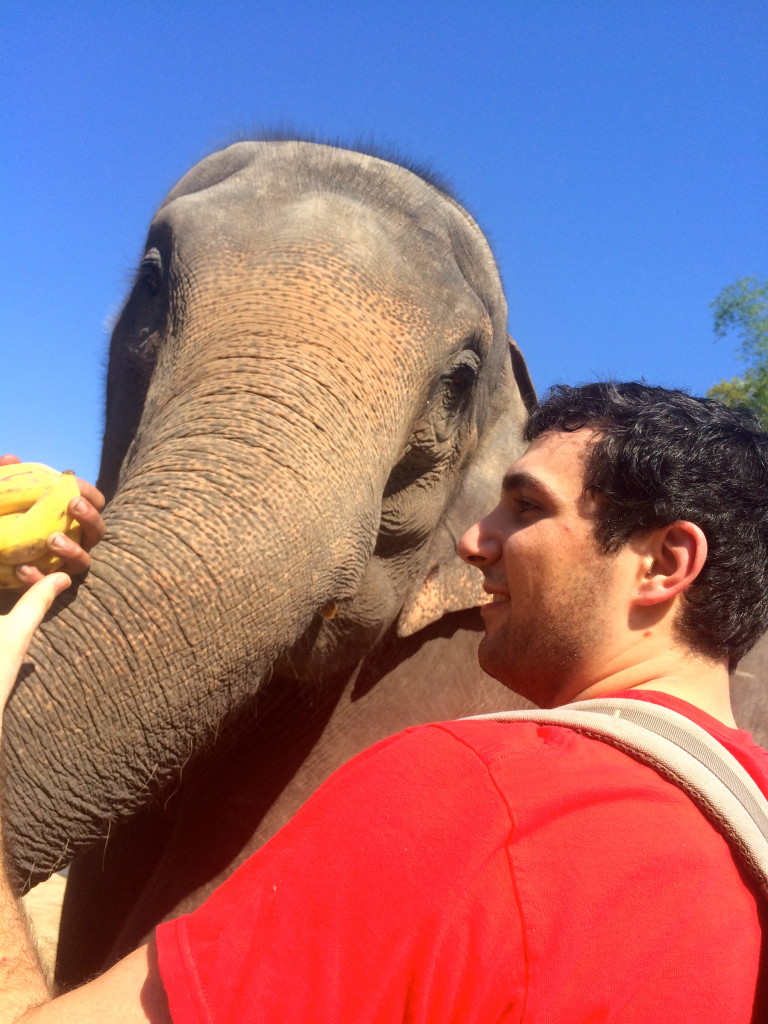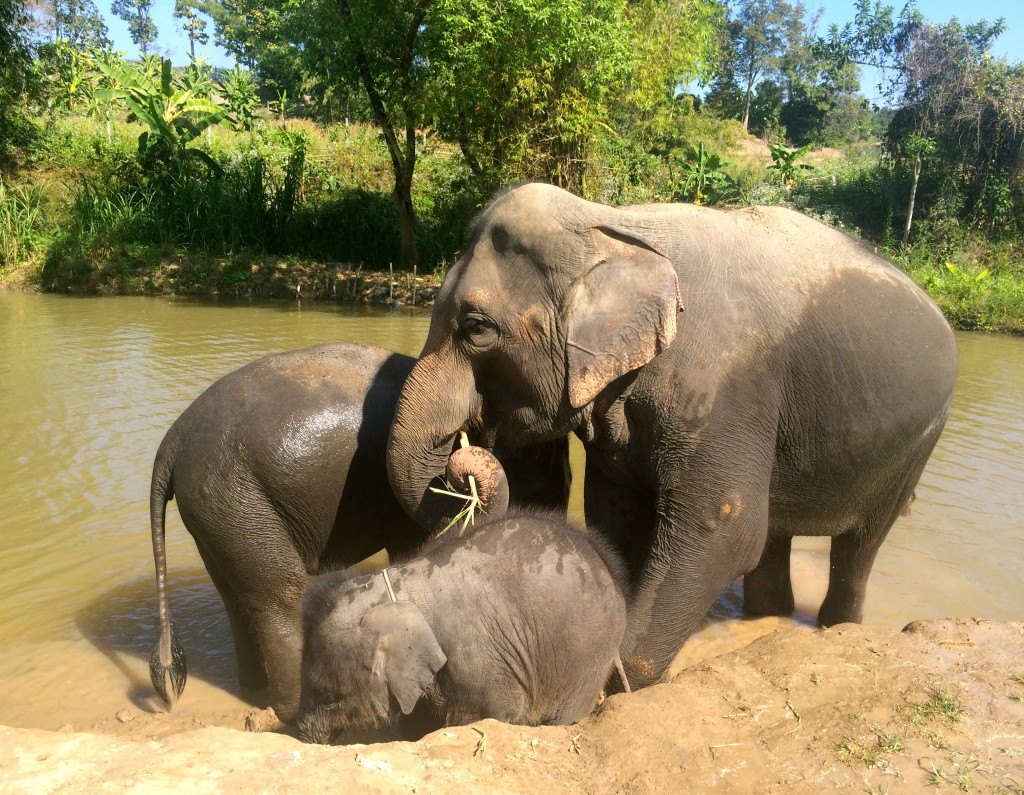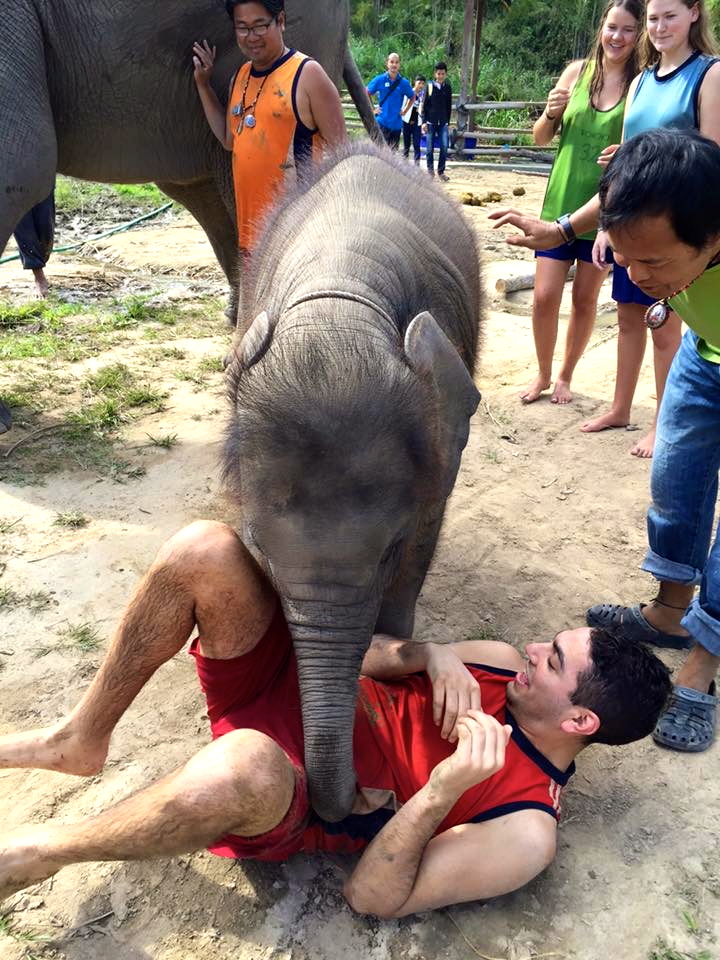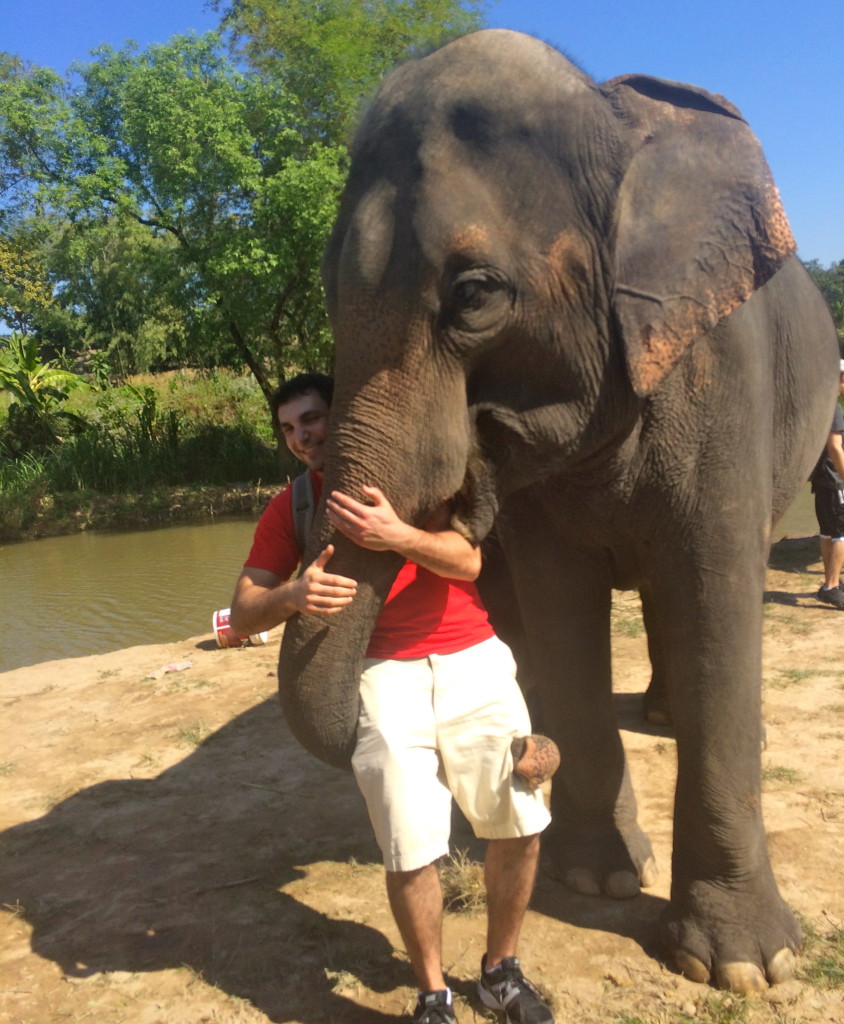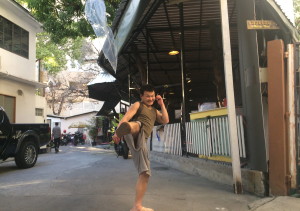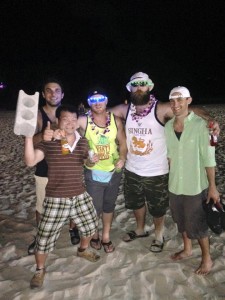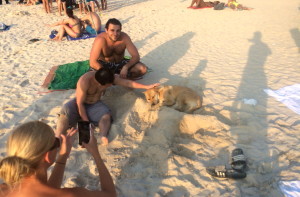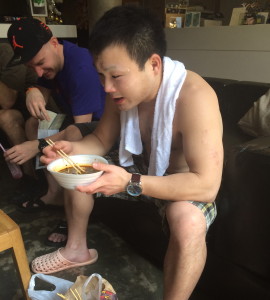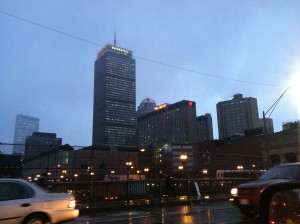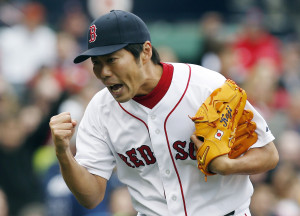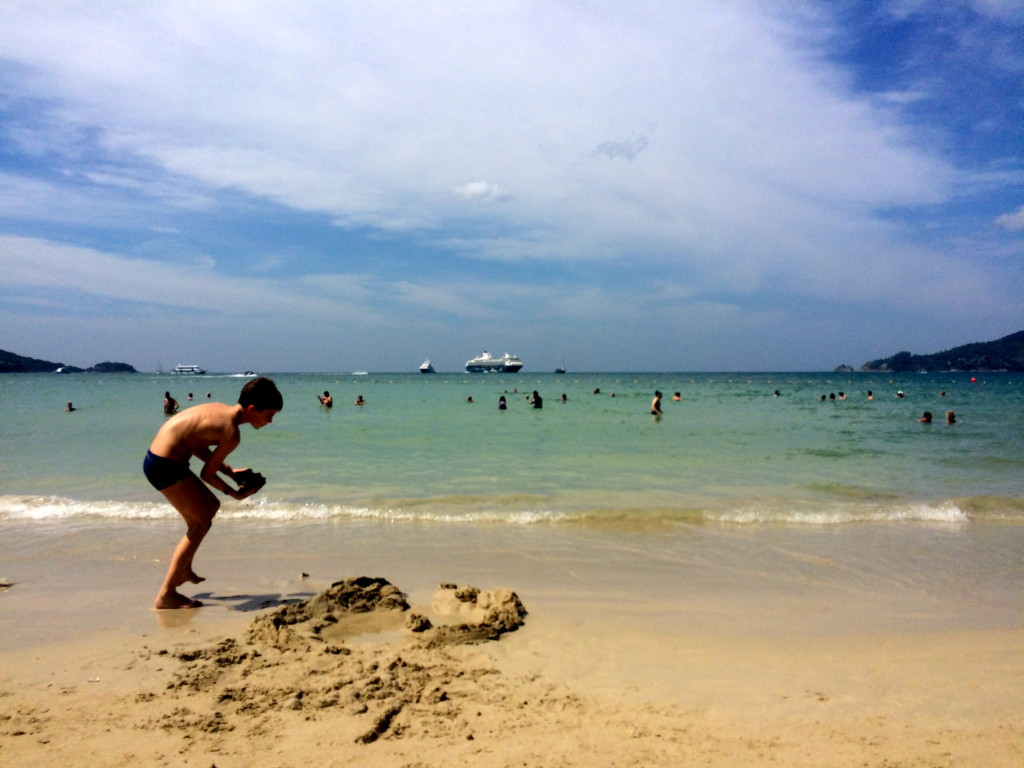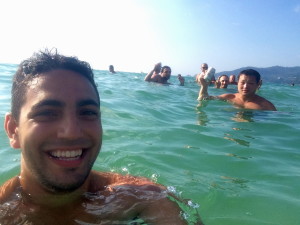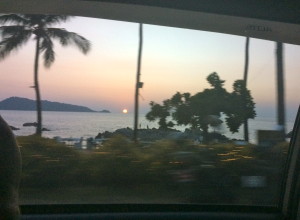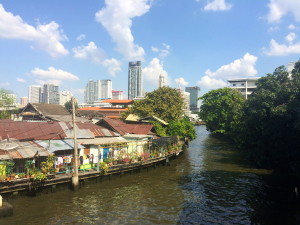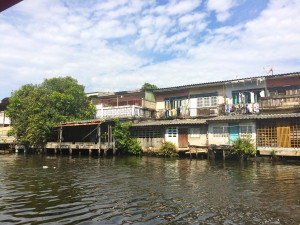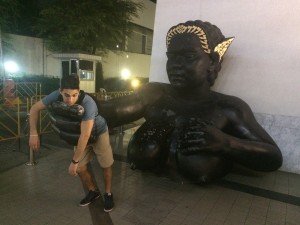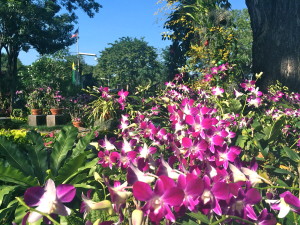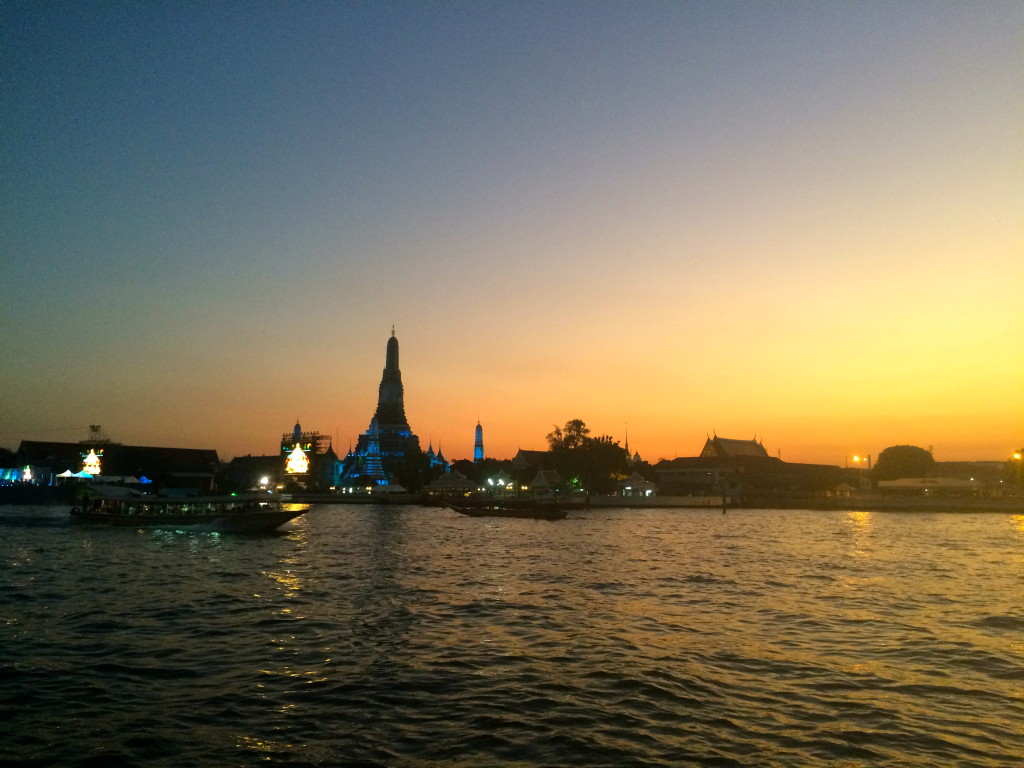Thailand was amazing.
From Christmas Day 2015 until January 4th, 2016, my brother Chris, my cousin Eli, myself, and for the latter half Yuu Koyama, trekked a journey through this southeast Asian coastal nation. No, it was more than a trek. It was an epic. And that’s a more accurate use of ‘epic’ than most of you have ever read.
We could achieve world peace if only, somehow, we could muster the resources (and the consent of the Thai people) to send anyone with a violent state of mind on a tour through Thailand. The country has a way of just making you feel good, whether it’s human pleasures or, more importantly, the relaxation and tranquility the people there have a way of transmitting to their visitors.
From how wonderful the people are, how charming life is in Chiang Mai, to how pleasant Thai people are even in the heart of massive, hedonist Bangkok, and how tranquil life is on a beach in Phuket, here are some moments I remember best from my journey through Thailand.
Chiang Mai
In Chiang Mai we linked up with my friend Evan. We saw our first live Muay Thai fights, some amazing mountaintop temples, and the vibrant nightlife of this diverse city in Thailand’s north. High in the mountains overlooking the city, Wat Phra That Doi Suthep has particularly magic to it beyond its golden aura. You can see more photos of my journey through Chiang Mai here.
A hotspot for expats from around the world, Chiang Mai was extremely isolated and highly inaccessible until the 1920s. Before then, one of the only ways to reach Chang Mai was to ride an elephant for many nights, through jungle and wilderness. Which gave us an idea for perhaps the most memorable part of the trip.
You can see the rest of the elephant photos here.
Before visiting this beautiful and abundant refuge, my brother Chris investigated thoroughly to make sure it was humane. Animal rights programs have suggested that places where people actually ride the elephants are inhumane – the elephants are severely overworked and forced into unnatural sun exposure. And apparently those tigers that people are lounging with are all sedated. So there’s that. It was nice to know this elephant didn’t need any steroids to lift Chris:
Again, more photos here.
At the park we fed and bathed the elephants. It was an odd but satisfying experience. The animals were surprisingly smart to me – how well they responded to humans reminded me of the smartest dogs I’ve met.
Muay Thai in Bangkok
Seeing live amateur Muay Thai fights in Chiang Mai was a great experience for me, but it did not fully satisfy everybody. Last year I extolled the virtues of traveling alone, but here is where traveling with multiple people shows its value. Travelers can motivate their partners to do unconventional activities – even by adventure’s standards. That can change one’s perspectives quickly.
Certainly for me, a 90-minute Muay Thai training session in Bangkok changed my perspective toward eating a heaping bowl of spicy noodles before a physical activity.
It was also rejuvenating in a total #inspiredwhiteguy way.
Of course, the best way to follow that experience up was to eat more street food. Thailand has the best street food I’ve ever eaten. It was usually fresh, often spicy, and always delicious and cheap. Of course, no one loved it more than Mr. Yuu Koyama, on his maiden voyage out of his home country.
Yuu Koyama
If the whole story were told here, many people would be surprised by how relatively tame Koyama was in Thailand. Nothing he did would have been legally in question, even in Japan. He ate a lot of food and drank a lot of beer, he saw a lot of sites, he met and entertained many people, and he enjoyed the weather and the scenery. Where he thrived most was in his social skills, and predicting this is why I begged, pushed, and pulled for him to join us on what became his first international trip. He didn’t waste a moment of it.
There was almost no use for Japanese in Thailand. Koyama used his always-improving English on the Thai hostel workers, food vendors, tour guides, bar girls, and most of all, new friends from countries all over the world.
He had all the optimism of a first time traveler, making him an incredible asset to include with more experienced backpackers like my brother and me. He must have added 20 Facebook friends on the journey, from Europe, Canada, South Africa, New Zealand, Malaysia, the US, and more. More frequent travelers know how numbing it can be to keep adding travel buddies after a while – I often see names on my Facebook feed and wonder where they came from. I even wrote a post months ago suggesting these friendships are quite temporary (though still valuable). But to Koyama, every part of the journey was worth saving, and that attitude was highly infectious.
Koyama was constantly entertaining, whether he meant to be or not. There’s something amazing about two people of different nationalities using English as a second language to communicate. Our motherly hostel owner in Phuket broke out yelling at Koyama for always bringing sand into the hostel in her cute Thai accent, and watching Koyama respond sarcastically in his Japanese accent “Ok! I’m cleaning!” followed by him mock-scrubbing the floor with his sandy towel, will be hard to forget.
As Koyama stumbled back into the hostel on January 1st, with a literal armful of street food from meat sticks and bags of soup to fried chicken and fruit, Chris, Eli and I watched. To me, it felt like bringing him on his breakout expatriation trip was one of my biggest accomplishments since arriving in Asia, whether or not anybody immediately realizes it.
As he ate the spicy food, his sweat poured freely into the soups. Angry to be the butt of so many jokes yet again, Koyama asked why white people don’t sweat as much when they eat. Eli doubled over in laughter.
Indeed, Koyama was the perfect counter to Eli, who was much more soft-spoken. Eli seemed content to watch Koyama’s exploration of the culture. They made an excellent actor-observer combination, busying themselves with each other while Chris and I quarreled philosophically over travel priorities.
You can see more photos from Bangkok here.
Where are you from?:
If Eli kept a blog, I would encourage him to write about Chris’s and my weeklong battle, which came to define the trip, instead of writing about it myself. Learning from me reflects a journalistic conflict of interest, but winners write history.
A debate about how to answer the eternally popular traveling question, “Where are you from?” erupted into a war for the soul of our trip. Maybe 1,000 people have asked me this question since I first landed in London in 2012. I’ve spent most of my time since then abroad, setting foot in nearly 20 countries.
Thus, I’ve learned the art of answering this question. After years of futilely explaining its historical significance, its sporting successes, its brief bid for the Olympics, and finally, in an affront to my pride, its proximity to New York, I accepted how inefficient it was to answer plainly, “Boston.”
Thailand seems to have proportionally fewer Americans traveling through it than other big tourist destinations, further clouding the prospect of local knowledge of American geography. In Japan, surprisingly more people are familiar with Boston than in other countries, owing to the popularity of the Boston Red Sox and the Japanese pitchers who’ve played for them. But there’s more to it.
Though most Japanese know Boston, I have nonetheless made a habit of at least answering “America,” first, then adding “Do you know Boston?” I’ve come to see how much more humbly it presents me as a representative of my home country and city, than to simply act as if everyone should know American geography and my hometown in particular. And this is even more important in a country like Thailand, where Boston is a distant and unknown metropolis.
So yeah, I’ve put a lot of thought into this. And one can imagine how irritated I was when a guy showed up in Japan, where I’ve spent two years delicately building up a positive presentation of America and American principles, telling maid cafe waitresses in Tokyo that he was from BOSTON.
“Burn the ego!” I implored to Chris, invoking the storied expression that has, in the past, helped me open my mind to new experiences, and which means something like to abandon restrictive principles tied to self-identity. For me, letting go of my love of home for just a moment helps me see that presenting Boston more humbly better serves it.
Chris would, from Japan on through Thailand, always irritatingly respond that the expression didn’t apply in this particular case, to which I would call him a fascist or something else completely irrational. Soon enough I too began to stubbornly answer “where are you from” my preferred way, without compromise. While Chris told drivers of the open-air, three-wheeled, motorized “tuk-tuk” taxis, who only made small talk in broken English to try to suppress our will to negotiate fares, that he was from Boston, I began telling Marylanders that I was from America.
We finally forgot our differences in the wonderful peace of Phuket.
Phuket
In Chiang Mai and Bangkok, our daily schedules were pretty packed. Muay Thai fights, elephants, training, canal tours, temple tours, a New Year’s Celebration, looking for Koyama at said New Year’s celebration, partying, night markets, and finally, traveling through the country from Chiang Mai, to Bangkok, to Phuket, pretty much occupied all of our time. From our arrival on Christmas day in Chiang Mai until dropping our bags at the hostel on the beachfront of Phuket, our schedule was pretty much full.
Everything changed in Phuket, a city, or island, as easy to document as it is hard to describe. All three days there, we never went more than half a kilometer from the beach. Roughly half the time, we were in the water, which was warm enough that we simply never had to step out, except to get more beer.
While Bangkok and Chiang Mai were devoted to experiences developed by the unique culture of the area – temples, animal refuges, martial arts, tours, unique nightlife experiences – Phuket was devoted purely to the creations of God – a big, beautiful beach with water warm enough to drink beers in for hours at a time, scantily dressed women, and stunning views.
After a jam-packed vacation, which began with seven days in Tokyo, recovering from an illness that caused me to vomit on a subway train in Osaka (I still made it to the airport), this was everything I needed. In consideration of the wider Japanese worklife balance, that may have been was my only completely relaxing three-day stretch in two years. And during this time we made the most friends, had the best nightlife experiences, and felt the most on vacation. My good vibes from Phuket lasted long after my time there. We made great friends with many people, like Jordan and Trent from Australia, and “Gronk” from Canada, because he looked a lot like Rob Gronkowski.
As we watched the Sun disappear from a taxi to the airport on our last evening in Phuket, whether behind the next flock of trees or beneath the Indian Ocean horizon, we could hardly tell, there was a feeling that we were leaving something fantastical behind. And not a moment later Chris’s hand rose silently. Sharing the road was none other than an elephant, wearing some kind of traditional garb, and carrying on its back a human who looked all too used to the experience. We stared in awe as the taxi rolled on through the mountains. From beginning to end, Phuket was almost literally a dream-come-true.
However, some of the good vibes did come from elsewhere.
Good Vibes from Good Thais
I lied earlier. On January 1st, while waiting for our bus to Phuket, we actually did have some free time in Bangkok, without any plans or goals – a very short span. During this brief respite I chose to take one last walk through the calm nearby neighborhoods. I set off, turning up a familiar side street, immediately transitioning from Bangkok’s booming commercial center to its reassuringly authentic canal-based neighborhoods.
There wasn’t much to do. But as a man of simple pleasures I found a journey anyway.
Waltzing along the nearest canal, a woman in a shop told me in hand-gestures, in which I’ve become extremely fluent, that she doesn’t sell Thai flags. Wandering to a small clearing, there were men playing foot-volleyball better than I could play with my hands. Carrying on down a side street, overcoming a misplaced fear of stray dogs, a new neighborhood was found.
If I saw a neighborhood that looked like this in New York City, I would probably never enter it. The path must be navigated around huge puddles and potholes. Drapes over the alley cover a large number of people lounging about. There are multiple stray dogs and no secure buildings – most of which are dilapidated by our high standards. Alleys are the only streets in Thailand without a portrait of their beloved king.
Fighting American inhibitions, I walked through. Old people playing cards looked up and, with my tiny nod, broke into huge smiles. It seemed Thai people were always one second away from smiling.
The first business I saw in this dingy alley is a licensed Apple reseller, with a sign from 1998. The others I don’t recognize. It’s getting late – we needed to catch a taxi to the airport in 30 minutes.
One wrong turn later, and I’m at a mosque. An Asian Muslim man redirected me toward the main road. And the side road contains a minor obstruction: seven men – and a couple children – sharing drinks, conversation, an appetizing table of food, and most obstructing of all – their hospitality.
“Hey!” they shout at me. “Come! You! Come!” Immediately, they start shifting around, beckoning me to join them.
A torrent of memories stream before my eyes – prostitutes screaming at us to join them in their bar, masseuses aggressively beckoning me as we walk by, men in suits shoving business cards into my hands, guys inviting men to shady sex bars on the streets, and the invitation “tuk tuk?” offering taxis, or the more direct, less polite, “Where you go?!?”
Getting ripped off is against everything I pride myself on. My defenses spring to full alert. Sensing a ripoff, I wait for a pause, prepared to tell the men, no thank you, and to keep walking.
Burn the ego! is the final memory to course through my head, as the men finally stop to let me respond. Nothing comes out of my mouth.
“You sit!” pipes the first man again. Silently, I consent, and join the men at the table. Snapping back into it, I let out a strong “Sawadee Krahp! (Hello!)”
Embracing the unexpected, I let the men place a drink in front of me, and we start talking.
They’ll charge me for that says pride’s citadel within.
Burn the ego coursed my own conscious again.
A young boy looks at me. His face is not unlike so many Japanese children I teach in Osaka – kids whose high opinions of me power me through the day. And through their eyes, and the eyes of this Thai boy at the table, I see myself, sitting here amongst visibly hospitable people, unable to enjoy it for a fear of losing pennies.
Finally, the walls of the citadel smolder to the ground. The ego burns. I start drinking my Thai whiskey soda, or whatever it was. I was drinking with locals in a third world country. I could not have been further from home. A surge of adventure and excitement assumed command.
The men were very conversational. I don’t know how the conversation lasted as long as it did. They laughed, surprised, when I demonstrated that, by playing card games, I learned to count to ten in Thai – authentic reactions, not the patronizing overdone praise one receives in Japan for saying “arigatou.” They asked me what I thought of Thai women. They laughed at my English when I spoke it to the children.
They’re probably selling the girls… They’re only enjoying me because I’m giving them business… How much does this all cost? These questions surface now when I re-imagine the moment. But they did not come up as I sat there. The citadel was flooded with Thai troops. Happy troops. Armed with food, drink, and joyful faces.
It was a moment of pure submersion in a new culture. It couldn’t be permanent. But in the moment, I couldn’t have been happier.
I glance at my watch. The time of departure has snuck up on me. If I didn’t leave in five minutes, I would be late for the strict departure time I drilled into Koyama’s sweaty head a couple of hours earlier.
“I have to go,” I say. Now comes the awkward part I think, as I built the walls back up and reassume command of the situation. Wanting to leave a positive impression, I decided to move first.
“How much do I have to pay?”
“What?”
“This drink. How much? I pay.” I was speaking Koyamese. I took out my wallet.
“Oh!” said the man, putting two and two together and getting five. “More whiskey? We go store. Bottle pay!” He assumed I meant to party with them all night.
“No, I must leave. I need to go to Phuket,” I said, perhaps translating my meaning at last by listing the most touristy place in Southeast Asia. “I pay.”
“Oh, no,” said the man, a little confused, realizing at last what I meant. “Free. You, Thailand, is good luck!”
Once again, my ego was crumbling to the ground, this time from burning shame. With huge thank yous, I left the wonderful people of Bangkok’s dense neighborhoods and set off for Phuket.
After returning to Japan, I asked Chris and Eli what they thought was our trip’s best moment. There were so many candidates, and really, how could you define ‘moment?’ In Phuket, we did the same thing every day. It was one big moment.
But if I had to choose, I would say it was realizing these people genuinely wanted to hang out with me, if only for ten minutes. I would even say it was some time after that, when I realized that some people don’t have to suspend notions of self to be nice, good, hospitable, friendly, and generally curious about you and the rest of the world. I was lucky enough to meet those people in Thailand. I was even luckier to travel with three, especially Mr. Koyama.
If you value that in people, in a culture, as well as perfect weather and beaches, exciting history, tremendous cultural relics and temples, incredibly diverse, fresh food, a fun nightlife and cheap prices, or any combination of that, you should go to Thailand. Right now. Be good to them and have fun.
Follow on Twitter or Instagram @gregnasif
